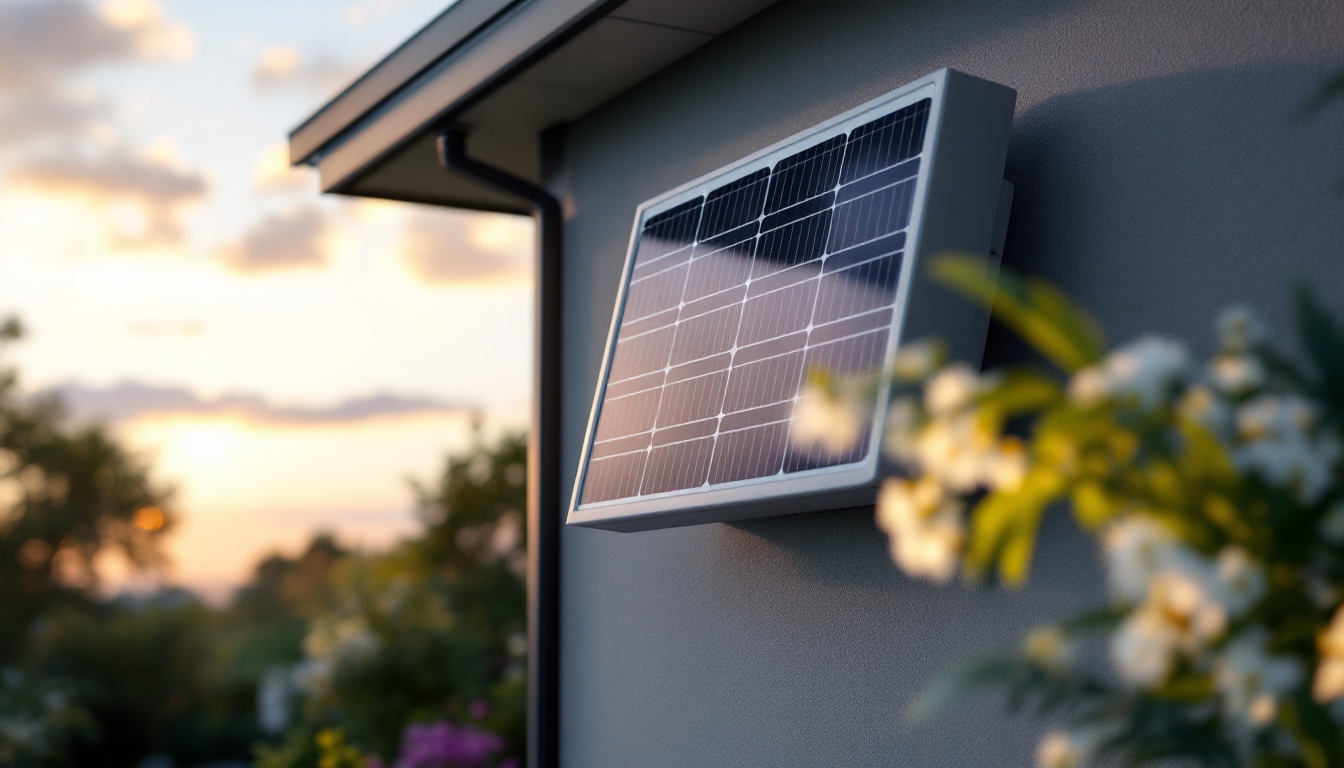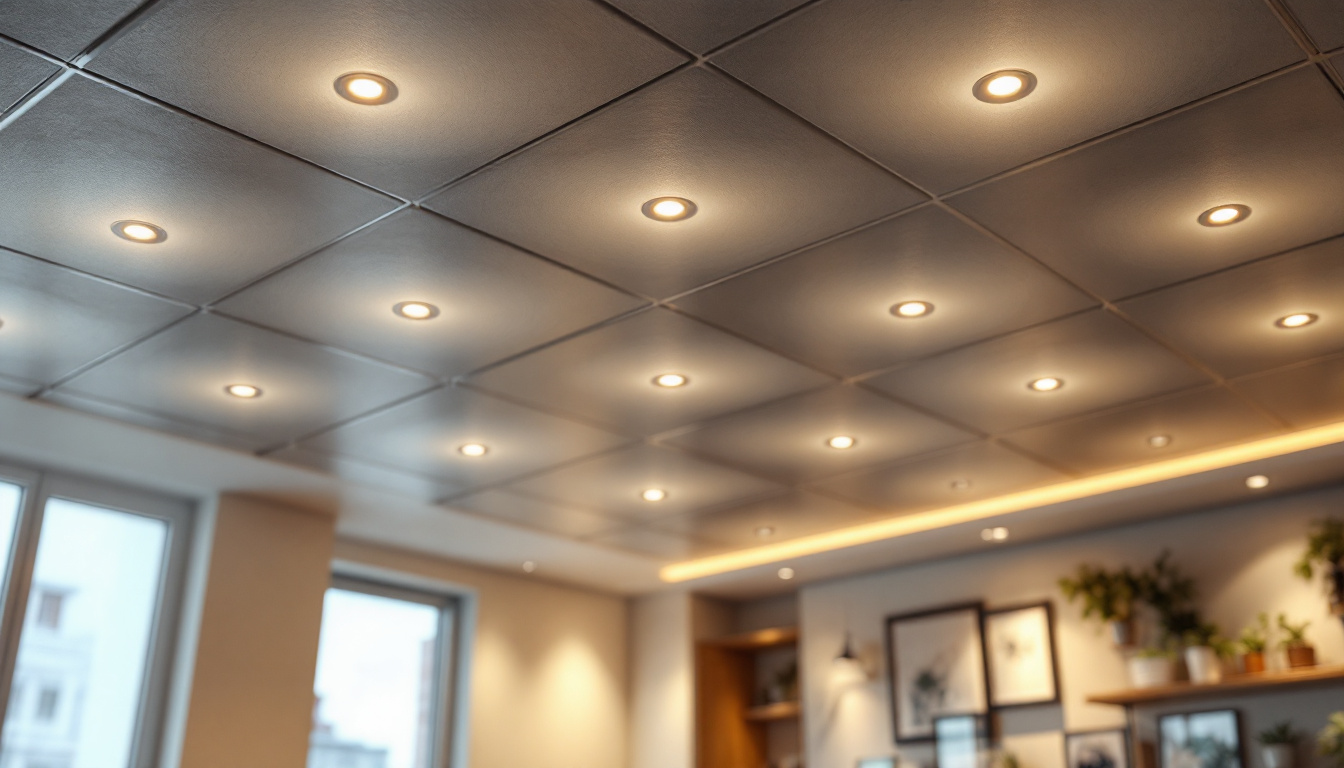
In an era where sustainability and energy efficiency are paramount, solar light panels have emerged as a revolutionary solution for lighting projects. As lighting contractors seek to provide innovative and reliable options for their clients, understanding the benefits and applications of solar light panels becomes essential. This article delves into how solar light panels can help future-proof lighting projects, ensuring they remain relevant and efficient in the years to come.
The adoption of solar light panels has accelerated due to growing environmental concerns and the demand for renewable energy sources. As technology advances, these panels have become more efficient, durable, and cost-effective, making them an attractive option for both residential and commercial lighting projects. The increasing awareness of climate change and the need for sustainable practices have propelled both consumers and businesses to seek alternatives that lessen their environmental impact.
Solar light panels operate by converting sunlight into electricity through photovoltaic cells. This electricity powers LED lights, providing illumination without relying on traditional power sources. The integration of smart technology further enhances the functionality of solar lights, allowing for features such as motion detection, remote control, and automated dimming based on ambient light levels. Additionally, advancements in battery storage technology enable these systems to store excess energy generated during the day, ensuring that lights remain operational even during cloudy weather or at night, thus maximizing their utility.
One of the most significant advantages of solar light panels is their ability to reduce energy costs. By harnessing renewable energy, clients can save on electricity bills while minimizing their carbon footprint. Additionally, solar lights require minimal maintenance and have a longer lifespan compared to traditional lighting solutions, making them a cost-effective choice in the long run. The environmental benefits extend beyond mere energy savings; by reducing reliance on fossil fuels, solar light panels contribute to cleaner air and a healthier ecosystem. Furthermore, many regions offer incentives and rebates for solar installations, further enhancing the financial appeal for potential users.
Solar light panels can be utilized in various settings, including residential gardens, commercial parking lots, pathways, and public spaces. Their versatility allows contractors to tailor solutions to meet specific client needs, enhancing the overall appeal of projects. Furthermore, as cities become more focused on sustainability, the demand for solar lighting solutions in urban environments is expected to grow. Not only do these panels provide illumination, but they also add to the aesthetic value of landscapes and urban designs, seamlessly blending functionality with beauty. In parks and recreational areas, solar lights can enhance safety while creating inviting atmospheres for evening gatherings, promoting community engagement and outdoor activities.
When planning a solar lighting project, several design considerations must be taken into account to ensure optimal performance and client satisfaction. From site assessment to fixture selection, each element plays a crucial role in the overall success of the installation.
A thorough site assessment is essential for determining the feasibility of solar light installation. Factors such as geographical location, shading from trees or buildings, and the orientation of the panels significantly impact the amount of sunlight received. Conducting a detailed analysis will help in selecting the right type and number of solar panels needed for the project. Additionally, understanding seasonal variations in sunlight can further refine the design; for example, areas that experience heavy snowfall may require panels with a steeper angle to prevent accumulation, while regions with prolonged summer days may benefit from larger battery storage systems to harness excess energy.
Choosing the right fixtures is vital for both functionality and aesthetics. Solar light panels come in various designs, from sleek modern styles to more traditional looks. Contractors should consider the architectural style of the surrounding environment to ensure that the lighting complements the overall design. Additionally, selecting fixtures with adjustable brightness and color temperature can enhance the user experience. It’s also important to consider the materials used in the fixtures; durable, weather-resistant materials not only prolong the lifespan of the lights but also maintain their appearance over time, reducing maintenance costs and ensuring that they continue to enhance the landscape.
As smart technology continues to evolve, integrating it into solar lighting systems can provide added convenience and efficiency. Features such as app control, motion sensors, and timers allow clients to customize their lighting experience. This not only enhances usability but also contributes to energy savings by ensuring lights are only on when needed. Furthermore, the integration of smart technology can facilitate data collection on energy usage and performance, enabling ongoing optimization of the system. This data can be invaluable for future projects, as it provides insights into user behavior and environmental conditions, allowing for more tailored solutions that meet specific needs.
Understanding the regulatory framework and available incentives for solar lighting projects is crucial for contractors. Many regions offer rebates, tax credits, or grants to encourage the adoption of renewable energy solutions. Staying informed about these opportunities can help contractors provide clients with cost-effective options while navigating the complexities of compliance.
Each municipality may have specific regulations governing the installation of solar lighting. These can include zoning laws, building codes, and safety standards. It is essential for contractors to familiarize themselves with local requirements to ensure that their projects meet all necessary guidelines, avoiding potential delays or fines.
Many governments and organizations offer financial incentives to promote the use of solar energy. These can significantly reduce the upfront costs associated with solar lighting projects. Contractors should actively seek out and communicate these opportunities to clients, as they can be a compelling factor in decision-making.
The installation of solar light panels requires careful planning and execution to ensure optimal performance. Adhering to best practices not only enhances the longevity of the system but also maximizes the benefits for clients.
Correct mounting of solar panels is crucial for capturing maximum sunlight. Panels should be installed at an angle that allows for optimal solar exposure throughout the year. Additionally, ensuring that fixtures are securely mounted will prevent damage from wind or other environmental factors.
While solar light panels are often wireless, ensuring proper wiring and connectivity for any integrated smart features is essential. Contractors should follow manufacturer guidelines for installation and ensure that all connections are secure to prevent issues down the line.
After installation, conducting thorough testing of the solar lighting system is vital. This includes checking the functionality of all features, such as motion sensors and remote controls, as well as ensuring that lights operate efficiently during both day and night. Quality assurance checks help identify any potential issues early, allowing for prompt resolution.
To ensure the longevity and efficiency of solar lighting systems, regular maintenance is essential. While solar lights generally require less maintenance than traditional systems, certain tasks should not be overlooked.
Regular cleaning of solar panels is necessary to remove dust, debris, and other obstructions that can hinder performance. Additionally, periodic inspections should be conducted to check for any signs of wear or damage. Addressing minor issues early can prevent more significant problems down the line.
The batteries used in solar lighting systems play a critical role in performance. Over time, batteries may lose their capacity, necessitating replacement. Contractors should educate clients on the signs of battery deterioration and the importance of timely replacement to maintain optimal lighting conditions.
The solar lighting industry is continuously evolving, with new technologies and trends emerging that can further enhance the effectiveness and appeal of solar light panels. Staying informed about these developments can help contractors remain competitive and offer cutting-edge solutions to their clients.
Recent advancements in photovoltaic technology have led to increased efficiency and reduced costs for solar panels. Innovations such as bifacial solar panels, which capture sunlight from both sides, and transparent solar cells are paving the way for more versatile applications. Contractors should keep an eye on these developments to offer the most efficient solutions available.
As the push for renewable energy continues, integrating solar lighting systems with other renewable technologies, such as wind or geothermal energy, may become more common. This holistic approach can provide clients with comprehensive energy solutions that further reduce reliance on traditional power sources.
With the rise of smart city initiatives, solar lighting systems are increasingly being integrated into urban planning. These systems can communicate with other smart technologies to optimize energy use and enhance public safety. Contractors should consider how their solar lighting projects can align with these initiatives, providing added value to clients.
Solar light panels represent a forward-thinking solution for lighting projects, offering numerous benefits that align with the growing emphasis on sustainability and energy efficiency. By understanding the technology, design considerations, regulatory landscape, and future trends, lighting contractors can effectively future-proof their projects. As the demand for renewable energy solutions continues to rise, embracing solar lighting technology will not only enhance project appeal but also contribute to a more sustainable future.
Ready to elevate your lighting projects with the sustainable power of solar technology? At LumenWholesale, we provide lighting contractors with the highest quality, spec-grade solar light panels at unbeatable wholesale prices. Say goodbye to inflated markups and hello to premium lighting solutions that meet the highest industry standards. With our commitment to reliability and performance, plus the convenience of free shipping on bulk orders, you can ensure your projects are not only future-proof but also cost-effective. Take the first step towards a brighter, more sustainable future and explore our solar lighting options at the best value today.

Discover expert strategies from top lighting contractors on installing recessed lighting in drop ceilings.

Discover the essential best practices lighting contractors use to illuminate iconic structures like the Hi Bay Lights.

Discover the true cost to install under cabinet lighting with our ultimate guide for lighting contractors.

Discover essential insights for lighting contractors in this comprehensive guide on light bulbs.